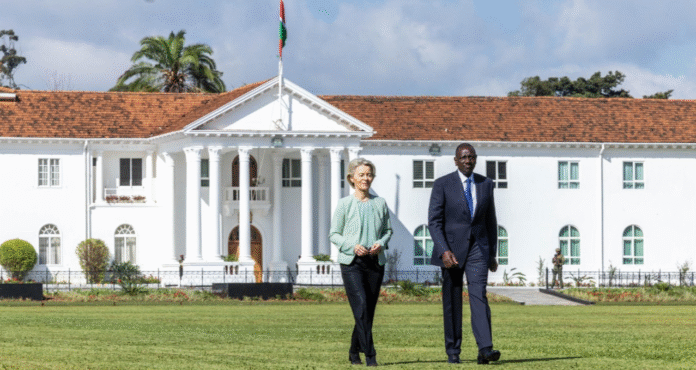
The government has set aside more than Sh680 million for the renovation of State House Nairobi, sparking fresh outrage from the public amid rising taxes and sweeping budget cuts in essential services.
According to the 2025/2026 budget estimates, the funds are part of a larger Sh894.9 million allocation earmarked for the facelift of the President’s official residence and multiple state lodges across the country.
In total, the Executive Office of the President has been allocated Sh2.3 billion, with a significant portion going toward refurbishment and maintenance works.
State House Nairobi is set to receive Sh680.7 million—the largest share—while the rest will go to state lodges in Eldoret (Sh60.1 million), Mombasa (Sh42.5 million), Nakuru (Sh25 million), Kakamega (Sh25 million), Kisumu (Sh24 million), Kisii (Sh12.5 million), Sagana (Sh15 million), and the Mechanical Garage (Sh10 million).
Near-Permanent Construction Zone
Since President William Ruto took office in 2022, State House Nairobi has undergone continuous upgrades, effectively turning the facility into a near-permanent construction zone. The works have included structural repairs, roofing overhauls, and a controversial architectural redesign that replaced the colonial-style roof with a modern flat-top structure.
The redesign drew sharp criticism from the Architectural Association of Kenya, which condemned the loss of the historic building’s iconic features.
Timing Triggers Public Backlash
The timing of the allocation has amplified public discontent, coming on the heels of major tax protests and after a year marked by the withdrawal of controversial tax proposals under the now-shelved Finance Bill 2024.
Critics argue that the multimillion-shilling renovation plans contradict President Ruto’s repeated promises to cut luxury and non-essential government spending under his administration’s austerity measures.
Interestingly, the Sh894.9 million figure follows a budget reversal. Earlier in 2024, the Treasury had removed Sh1.5 billion earmarked for similar renovations in the second supplementary budget. That money has now reappeared in the 2025/2026 estimates, raising questions about shifting government priorities.
Treasury Defends Spending
Defending the allocations, the National Treasury stated that the renovations are necessary for the President to effectively discharge his constitutional duties.
“In the fiscal year 2025/26 and throughout the medium-term period, the State House will support His Excellency in executing the constitutional mandate,” the budget statement reads.
The government says the works are also intended to address long-standing structural concerns. Assessments carried out after President Ruto’s inauguration in 2022 reportedly found parts of the 117-year-old building to be deteriorating and unsafe. Some architects even recommended fresh construction to replace the decaying sections of the structure, which originally served as the residence of the governor of the British East Africa Protectorate.
State Lodges Receive Fresh Focus
Under President Ruto, several previously underutilized state lodges have seen increased activity. Lodges in Eldoret, Sagana, and Kisumu are now frequently used for cabinet meetings and other official engagements.
The renovation funds for these lodges, however, have also drawn scrutiny from lawmakers and civil society groups, who question the transparency of the expenditures.
In a March appearance before Parliament, State House Comptroller Katoo ole Metito revealed that funds for the renovations were being disbursed through the National Intelligence Service (NIS) and the Ministry of Defence—a move critics say clouds accountability.
Records from the Controller of Budget indicate that the Ruto administration spent Sh122.8 million on State House renovations in the 2022/2023 financial year, followed by Sh50 million in 2023/2024.
In comparison, former President Uhuru Kenyatta spent Sh10.7 billion on refurbishment and infrastructure projects in the final two years of his presidency.
As the government faces mounting criticism over its fiscal priorities, the lavish allocations for State House upgrades are fueling further debate over the balance between leadership comfort and public service delivery.






